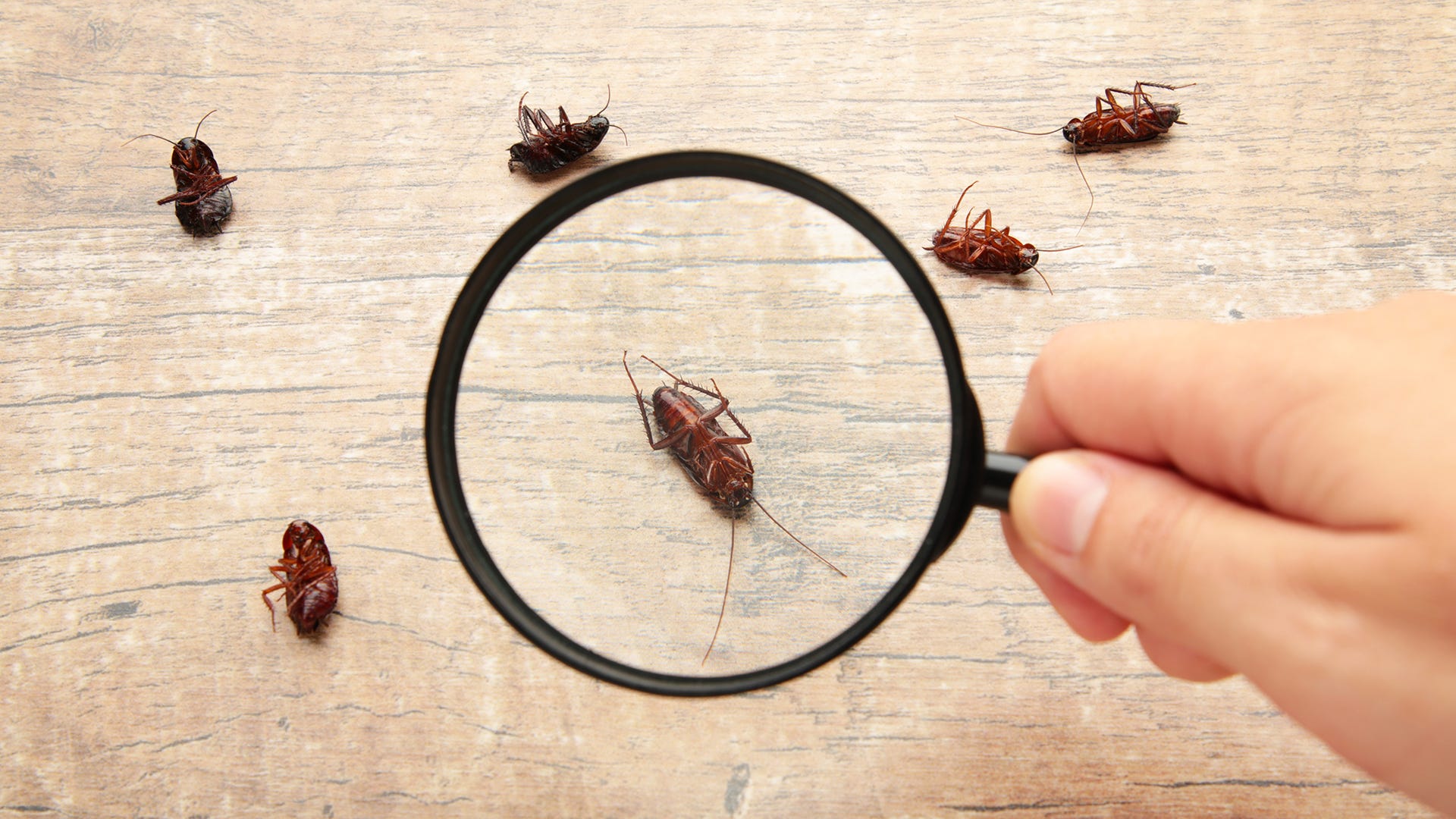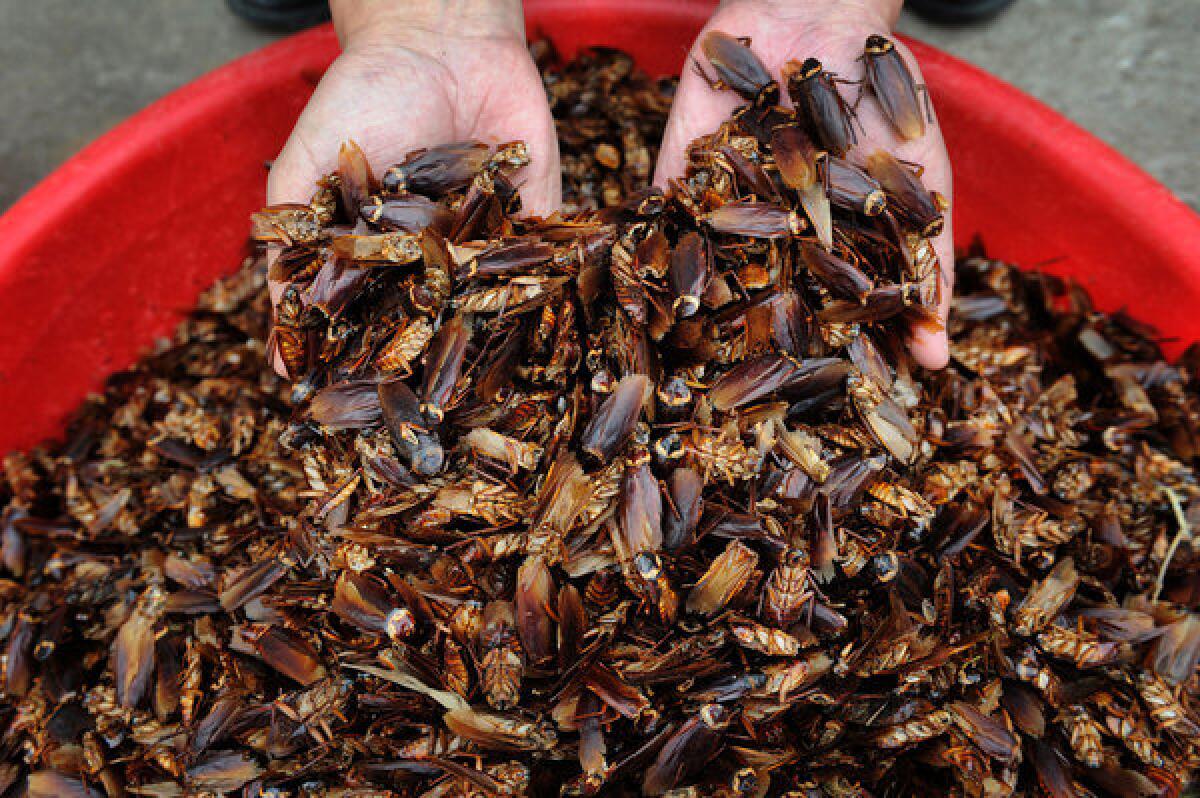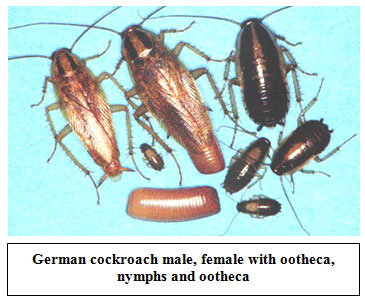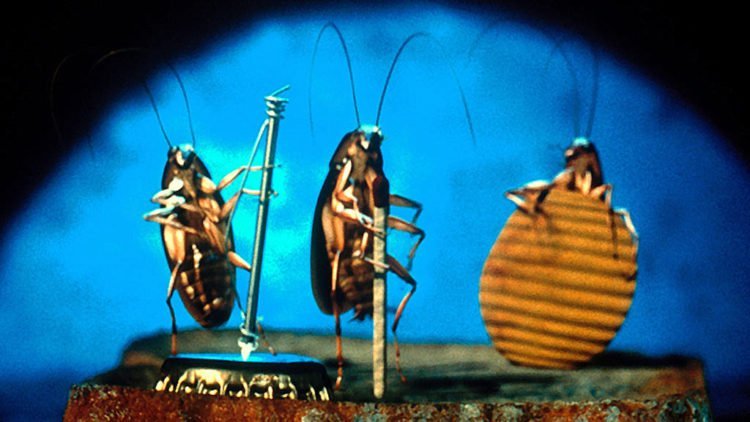Cockroaches were made to serve as a food source for other animals and contribute to the ecosystem by releasing nitrogen used by plants. Their presence is vital for maintaining the balance of food chains and nutrient cycling in ecosystems.
Without cockroaches, plants would suffer, affecting oxygen production essential for human survival. Their role in breaking down plant and waste matter also serves a purpose in nature. Cockroaches, often considered a nuisance, play a significant ecological role. While they may not be appealing to humans, their existence is essential for the well-being of ecosystems.
Understanding the reasons behind the creation of cockroaches sheds light on their importance in maintaining the delicate balance of nature. Despite their unfavorable reputation, these creatures have a crucial place in the intricate web of life on our planet.

Credit: www.terro.com
The Role Of Cockroaches In Ecosystems
Cockroaches play a crucial role in ecosystems as they are a food source for other animals and aid in the release of nitrogen, essential for plant growth. Without them, the balance of food chains and nutrient cycling would be disrupted, impacting plant life and ultimately human survival.
Importance Of Cockroaches In Food Chains
Cockroaches play a vital role in food chains, as they are a source of food for many animals such as birds, lizards, frogs, and even some mammals. These creatures are part of the diet of many predators, and their elimination would significantly impact the survival of these animals. Additionally, cockroaches help to maintain a balance in the ecosystem by controlling the population of other insects. Their presence helps to prevent overpopulation, which could lead to the depletion of resources and the destruction of habitats.Contribution To Nutrient Cycling
Cockroaches also contribute to nutrient cycling in ecosystems. They break down organic matter and recycle nutrients, making them available to other organisms. These insects are capable of digesting a wide range of materials, including cellulose and chitin, which are difficult to break down. As they consume these materials, they release nutrients back into the soil, which are then taken up by plants. This process helps to maintain the health of the soil and supports the growth of vegetation.In conclusion, cockroaches play an essential role in the ecosystems they inhabit. Their presence helps to maintain a balance in the food chain and contributes to nutrient cycling. While they may be considered pests in human habitats, their elimination could have significant consequences for the natural world. Therefore, it is essential to recognize their importance and to take measures to control their populations without causing harm to the environment.The Impact Of Cockroach Extinction
Cockroaches have often been seen as pests, but their existence in ecosystems plays a crucial role. The extinction of cockroaches would result in a significant impact on various aspects of the environment and human life.
Disruption Of Food Chains
The absence of cockroaches would disrupt the food chains in many ecosystems. They serve as a vital food source for various animals, including birds, amphibians, and some mammals. Without this food source, the populations of these animals could decline, leading to imbalances in the ecosystem.
Effects On Nutrient Cycling And Ecosystems
Cockroaches play a crucial role in nutrient cycling within ecosystems. They aid in the decomposition of organic matter and the release of essential nutrients like nitrogen. Without them, nutrient cycling processes could be disrupted, affecting the overall health of ecosystems.
Sanitation Concerns
The elimination of cockroaches might alleviate some sanitation concerns, particularly in human habitats. Cockroaches are often associated with unsanitary conditions and can spread diseases. However, their absence could lead to an increase in other pest populations, impacting sanitation in different ways.
The Evolution And Adaptation Of Cockroaches
Origin In Tropical Regions
Cockroaches have a fascinating history that dates back millions of years. It is believed that roaches were originally from tropical regions, where they evolved and thrived in warm and humid environments. These regions provided the perfect conditions for their survival and proliferation, allowing them to adapt to various challenges and changes over time.
Adaptation To Various Environments
One of the most remarkable aspects of cockroaches is their ability to adapt to a wide range of environments. From tropical rainforests to urban areas, they have proven to be incredibly resilient and versatile creatures. Their adaptability has enabled them to survive in diverse climates and habitats, making them one of the most widespread and persistent insect species on the planet.

Credit: www.latimes.com
Religious And Philosophical Perspectives On Cockroaches
Cockroaches have religious and philosophical significance as they are believed to serve a purpose in the ecosystem. Some believe that they were created to contribute to nutrient cycling and maintain ecological balance. Their existence is seen as part of a larger design, with their presence benefiting other organisms and the environment.
Theories On The Purpose Of Cockroaches
Cockroaches are one of the most resilient creatures on earth, but what is their purpose? This question has been asked for centuries, and there are several theories about why they exist. From a religious and philosophical perspective, there are some interesting interpretations that help shed light on the purpose of cockroaches.Religious Interpretations
Many religions have different interpretations of why cockroaches were created. Some believe that cockroaches were created as a punishment for humans, while others believe they were created to serve a specific purpose.In Hinduism, cockroaches are viewed as an incarnation of the god Brahma and are revered as sacred animals. In contrast, in Islam, cockroaches are considered unclean and are not permitted to be eaten.Views On God’s Creation
From a philosophical perspective, some believe that cockroaches were created by God to serve a specific purpose in the ecosystem. Cockroaches are scavengers and can feed on decaying matter. They play a vital role in the decomposition process, which helps to break down organic matter and recycle nutrients back into the environment. Without cockroaches, the ecosystem would suffer, and there would be a significant impact on plant growth and soil quality.In conclusion, while cockroaches are often viewed as pests, they play a crucial role in the ecosystem and have a purpose in the world. From a religious and philosophical perspective, there are different interpretations of why they were created, but they all share the common belief that everything in the world has a purpose.Cultural And Historical Significance Of Cockroaches
Roaches In Ancient History
Roaches have been a part of human history for centuries, with evidence of their presence dating back to ancient times. In ancient Egypt, they were often associated with decay and filth, and their presence was considered a bad omen. Similarly, in ancient Greece and Rome, cockroaches were often seen as pests and associated with uncleanliness.
Cockroaches In Literature And Folklore
Throughout history, cockroaches have made appearances in literature and folklore, often symbolizing resilience and survival. In some cultures, they are seen as symbols of endurance and adaptability, while in others, they are associated with negative connotations such as filth and decay.
Understanding Cockroach Behavior And Ecology
Roaches, while often deemed as pests, serve a purpose in the ecosystem. Understanding their behavior and habitat preferences sheds light on their survival strategies.
Habitat Preferences
Cockroaches are highly adaptable insects that thrive in warm, humid environments. They prefer dark, secluded areas such as cracks and crevices where they can remain undisturbed.
Factors Attracting Cockroaches To Human Dwellings
- Food: Cockroaches are attracted to crumbs and food residues left out in kitchens or dining areas.
- Water: They seek out moisture sources like leaky pipes or standing water.
- Shelter: Cluttered spaces provide ideal harborage for roaches to hide and breed.
Practical Approaches To Cockroach Control
Implementing preventive measures is crucial in controlling cockroach infestations.
- Seal Entry Points: Use caulk to seal cracks and crevices where roaches can enter.
- Maintain Cleanliness: Keep kitchen and food areas clean to eliminate food sources for roaches.
- Dispose of Garbage Properly: Seal trash cans tightly and dispose of garbage regularly.
Adopt effective strategies to manage and eradicate cockroach populations.
- Bait Traps: Use bait stations to attract and trap roaches.
- Professional Pest Control: Seek assistance from pest control professionals for severe infestations.
- Regular Inspections: Conduct periodic inspections to detect and address roach infestations early.

Credit: www.idph.state.il.us
The Future Of Cockroach Research
The purpose of cockroaches lies in their role as a food source for animals and their contribution to nitrogen release for plant growth, essential for oxygen production. Their existence is crucial for ecosystem balance and nutrient cycling, highlighting their significance in nature’s intricate web.
Innovative Studies On Cockroach Ecology
Researchers are delving into new, cutting-edge studies on cockroach ecology to unveil their intriguing behaviors and survival mechanisms.
Scientists are utilizing advanced technologies to observe and analyze how cockroaches interact with their environment.
Potential Applications In Environmental Conservation
Studying cockroaches could lead to breakthroughs in environmental conservation efforts.
Understanding their role in ecosystems could help in sustainable practices and preserving biodiversity.
Frequently Asked Questions
What Was The Purpose Of Cockroaches?
Cockroaches serve as food for animals and aid in nitrogen release for plant growth, ensuring ecosystem balance.
What Would Happen If Cockroaches Went Extinct?
If cockroaches went extinct, it could disrupt ecosystems, affecting food chains and nutrient cycling. However, it may also address sanitation concerns.
Is There A Reason For Roaches?
Cockroaches serve as a food source for other animals and aid in nitrogen release for plants, essential for oxygen production. They play a vital role in ecosystems, disrupting their absence could affect food chains and nutrient cycling. Keeping homes clean can prevent infestations.
Conclusion
In essence, cockroaches serve vital roles in ecosystems by aiding in nutrient cycling. Without them, disruptions in food chains could occur. Despite their negative perception, cockroaches have a purpose in nature. Keeping your home clean can help prevent infestations. Remember, everything in nature has a role to play.
Related posts:

I’m MD Tanvir, and I bring years of expertise gained from working closely with pest control companies to the forefront. My journey in the industry has inspired me to launch Bug Battler, a platform aimed at equipping people with the know-how to combat pests autonomously. Through Bug Battler, I aim to empower individuals with practical insights to tackle pest infestations effectively.

